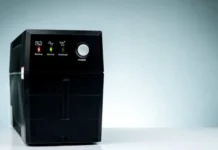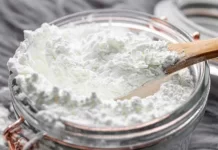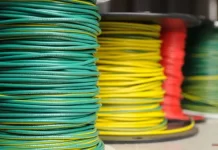Water purifiers are the most common thing that we all follow or must follow to be healthy and keep our family healthy.
Here are some of the most common water purification techniques you can find online:
a) Activated Carbon Filters: The activated carbon filters mostly work on the adsorption method. When the water is passed through a carbon filter, activated carbon adsorbs all the harmful molecules which are present in the water. Mostly, these filters are used as complementary filters with other water purification methods like UV purification and RO purification.
b) Ultraviolet Purifier: The UV water purifier is among the best options if you want to get rid of bacteria and viruses without even removing the essential minerals available in the drinking water. This purification method is among the most eco-friendly ways to purify the water because it does not add any chemicals and does not wastewater. It is the most popular choice for industrial water purifiers.
c) Reverse Osmosis Purifier: These purifiers are mostly used in home and commercial water purifiers. RO purifiers can filter out many harmful pollutants through their semi-permeable membrane. Purified water from this purifier might taste flat because reverse osmosis removes some types of essential minerals. It is best if the TDS level in the water is above 500ppm.
How to Select the Best Water Purifier for Home?
While there might be many water purifiers available online, here are some mentioned parameters which will help you to decide on how to select the best purifier for your home:
Is your surface water like rivers and lakes or been supplied by the municipality or from groundwater like borewells or a mixture of both? Then the water, which is supplied from Municipal Corporation, has more chances of TDS or dissolved impurities are low than you need to protect yourself from microbiological impurities like bacteria and viruses. If the water supply is groundwater, i.e., by tankers, then there may be a higher risk of dissolved impurities by altering the taste of the water, and this impure water can affect your long-term health.
One rule of thumb is that if you get groundwater, then check the TDS with a TDS meter. If the TDS is above 500 ppm, then choosing an RO water purifier might be beneficial. If the water TDS is lower than 500 ppm, then a UV purifier will be effective in purifying the water.
You must note that using a RO water purifier where TDS levels are low like 200 ppm, can be detrimental to the health in the long run as the water is stripped of essential minerals and salts.
You can get the best RO water purifier price with amazing offers at Pureit Water and shop for multiple products online.
Things to Consider Before Buying Water Purifier
1. Water quality of your supply: You must test the tap water available at your home. As the type of filtration required is mostly defined by the source of water. The very first thing, which you must do, is testing the quality. There are many easy-to-check kits available at the market, or call an expert to do this job. You have to install a water purifier only the water is contaminated.
2. Check the home water system: If the water test report doesn’t show any kind of hazardous contamination in the water supply, the problem might be in your home piping system. Check for leakages in all the faucets as well as pipelines in your home. Make sure that the surroundings of the house is clean and there is no clogged drainage. Remember that metal water pipes can accumulate rust and other organic contaminants slowly because of moisture. The pipes must be cleaned quarterly to prevent any kind of organic growth and rust.
3. Understand the needs: Water purifiers can easily eliminate the specific contaminants which they have mentioned in the labels. Try to be aware of what types of contaminants are present in your water supply. Always check whether the purifier can eliminate the list of contaminants you want. Also, analyze your everyday consumption of water-based on drinking, washing, bathing, and cooking. If water purification is important only for drinking or bathing purposes, point-of-use filters like RO filters, under sink filters, and countertop water filters are important.
4. Explore the categories: With the advancement of water filtration technology, there are many processes available today to purify tap water. There are many categories of water filters based on performance, durability, maintenance, and cost that also fits all types of water filtration solutions, ranging from a personal home to a commercial industry.
5. Maintenance cost: Remember that the maintenance cost of all the various types of water filters varies completely. While many purifiers might come cheap, the maintenance, like the replacement of cartridges and hoses, can be heavy on the pocket. So before buying, get detailed maintenance and repair costs of the purifier from the company before buying them.
Water purifiers are just not only a one-time investment; they also need regular maintenance depending on the quality of the cartridges. Some companies also provide features like quality index and security alarms for a replacement that are beneficial.

































